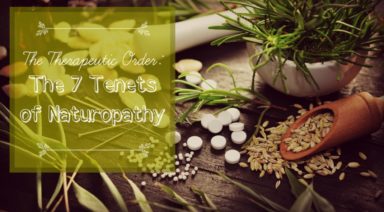Healthy Vegan Fats and Foods: Vegan Diet Essentials

Many people new to veganism, especially in Western countries, overlook the nuances that come with this healthy diet. Perhaps they decide to become vegan after discovering yoga but don’t fully understand how to live out their new eating plan. For example, they might reject almost all fats, including unsaturated varieties. They’re unaware of or ignore the potential benefits of incorporating these important nutrients in their diet.
What are Good Vegan Fats?
The health benefits of consuming a sufficient amount of fat in the right forms and proper proportions have been shown to be immensely important in an endless number of areas impacting the state of body and mind.
Among other things, it can strengthen the immune system, enhance brain and nervous systems functions such as mood, intelligence, and behavior, greatly reduce cardiovascular disease, increase energy and performance, grow healthy skin, hair, and nails, regulate body weight, and improve organ and gland function.
Good Fat Versus Bad Fat
In the landscape of fats, it can be challenging to distinguish the good from the bad. In general, saturated fats, most of which come from meat and dairy products, raise the amount of LDL (low-density lipoprotein) cholesterol in your blood.
According to the American Heart Association, the sustained consumption of saturated fats makes it more likely you’ll suffer from a stroke or heart disease. Blood type and disease risk should also be considered. By choosing to be vegan, you’re automatically reducing your saturated fat intake.
It’s worth noting that some plant-based foods, such as coconuts, palm oil, and cocoa butter, do contain saturated fat. Because there are so many tasty and healthy foods rich in unsaturated fat, it’s best to avoid eating these few plants that are high in saturated fat.
However, if you’re impressed with the potential benefits of coconut oil, make sure it comprises 30 percent or less of the fat you eat. That’s the widely accepted dietary limit for saturated fat, regardless of the source.
Essential Fatty Acids
Omega-3 and Omega-6 are the two essential fatty acids (EFAs), “essential” meaning that the body cannot produce them — they must be ingested, by eating foods rich in EFA. EFAs are a type of fat known as long-chain polyunsaturated fatty acids and an important dietary component of overall health.
Lending support to the healthy function of the cardiovascular, immune, and nervous systems, they also play an integral role in promoting cell health. Repair and regeneration of the cellular membrane is vital for keeping the body biologically young and enabling it to retain mobility and vitality throughout life.
Contributing to our cells’ ability to receive nutrition and eliminate waste, EFAs help keep the cellular regeneration process moving. Our body’s ability to fight off infection and reduce inflammation is in part dependent on having an adequate supply of EFAs in the diet. In fact, healthy and efficient brain development in children has been linked to a diet rich in EFAs.
In addition, a balance of omega-3 and omega-6 EFAs are vital for skin health. Dry skin is commonly treated topically with a moisturizer, leaving the cause of the problem unaddressed. A diet with adequate EFAs will keep skin looking and feeling supple.
The present-day American diet contains an excess of omega-6 by10 to 25 times with almost no omega-3. This imbalance among other things has been shown to contribute to stroke, heart attack, chronic inflammation, cognitive impairment, allergy, and autoimmune diseases. Excellent sources of omega-3 to help restore the natural balance are flaxseed and hemp oil as well as walnuts.

Six varieties of different nuts on a plain yellow background, horizontal composition
GLA
Gamma-linolenic acid (GLA) – is difficult to attain omega-6 EFA with potent anti-inflammatory properties via the production of hormone-like substances called eicosanoids. These help soothe skin, promote healing, and regulate water loss. GLA’s anti-inflammatory properties expand blood vessels enabling better blood flow. It is known as an immune booster, cancer fighter, cholesterol reducer, arthritis reliever, and supple, beautiful skin. Evening primrose, borage, and hemp seed oils are the best sources of GLA.
MTCs
Another healthy yet underrated fat are Medium-chain triglycerides, or MCTs, found in large amounts in coconut oil. They are unique in that they are a form of saturated fat, yet have many health benefits. Their digestion is nearly effortless and, unlike other fat, MCTs are utilized in the liver and are easier on the pancreas, liver, and digestive system. Within moments of MCTs being consumed, they are converted by the liver to energy which makes it an excellent source of energy during an intense workout or race. It has been shown to promote heart health, a strong immune system, a healthy metabolism, weight loss, and youthful skin.
Phytonutrients
Healthy fats like raw unprocessed plant-based oils also carry hundreds of phytonutrients such as chlorophyll, phytosterols, Carotenoids, Lignans (Phytoestrogens), tocopherols, tocotrienols, Flavonoids (Polyphenols) among others. Flax oil, for instance, when extracted properly can retain high levels of cancer-fighting lignans, while hemp oil is rich in many phytonutrients, in particular receiving a lot of attention for its high levels of immune-boosting, alkalinizing, and cleansing chlorophyll.
Antioxidants
Plant-based oils can also be a great source of antioxidants. Chlorophyll found in hemp oil has antioxidant like properties while berry seed oils are packed with antioxidants in a highly concentrated form. Raspberry, cranberry, and pomegranate seed oils are among the best. They can be hard to find in stores and are expensive, but they will deliver an extra dimension to a high-quality oil blend. A mixture containing all these oils is the ultimate essential fatty acid and antioxidant combination.

Quinoa salad with tomato and cucumber, blueberry and trail mix
Breaking Down and Understanding Cholesterol
Though the media has vilified cholesterol, it’s essential to your body’s ability to function properly. It helps build cell membranes, insulates nerves, and contributes to hormone production. Your body relies on the liver to turn fat into cholesterol, which travels around the body through your blood.
Cholesterol comes in two forms. One protects the body, and the other has the potential to damage it. Problems arise when there’s too much harmful cholesterol in your bloodstream, putting you at higher risk for cardiovascular disease. So, this is the heart of the matter: The dangerous cholesterol comes from saturated fat, and the good cholesterol comes from mono- and polyunsaturated fats.
Healing and Health Benefits from Plant-Based Good Fats
Plant-based fats not only enhance the taste of your food, but they also help make your body healthier. Take a look at omega-3 fatty acids they contribute to the normal functioning of the nervous system, eye health, and healthy brain development.
Some doctors and nutrition experts suspect these fatty acids might lower your chances of developing blood pressure problems, certain cancers, arthritis, and artery blockage. These potential benefits might be connected to fatty acids’ ability to help cells rid themselves of waste. Capture these benefits from omega-3 fatty acids through seed oils that come from plants such as chia, flax, and hemp.
Another major benefit of healthy fat is its anti-inflammatory properties. Fats are excellent at fighting muscle soreness and the hardening of arteries. In addition, they enhance your memory by supporting neurotransmitters such as acetylcholine. Some researchers say they even play a role in fending off Alzheimer’s disease and dementia.
All fat, including saturated, increases serotonin levels. This neurotransmitter guards against depression, enhances sleep, and relieves anxiety. So, eating plant-based fats means you get all these benefits without the added risk of raising your cholesterol levels.
In addition to providing direct health benefits, good fat enables your body to absorb certain nutrients. Vitamins such as A, D and E play a role in making your immune system work, creating hormones and maintaining healthy skin. These vitamins are fat-soluble, meaning your body won’t absorb them without fat being present.
Where Should Vegans get Fat?
1. Eat plants with fat-soluble vitamins and healthy fat.
One easy way to do this is to use olive oil to prepare carrots, winter squash and mushrooms
2. Grab a handful of almonds or another nut that’s rich in unsaturated fat after your workout.
You might find your muscles are a little less sore thanks to the fat’s ability to reduce inflammation
3. Choose flaxseeds over flaxseed oil.
Both offer healthy fat, but the seeds come with the added benefit of fiber. Tip: Mash the seeds, so you get the oil as well as the fibrous exterior
4. Lower high cholesterol by increasing polyunsaturated fat in your diet.
This compound lowers all cholesterol, though both the damaging and protective kind
5. Target harmful cholesterol levels with larger quantities of monounsaturated fat such as olive oil.
Keep rice and oat milk in your diet because they contain little saturated fat and are high in polyunsaturated fat
6. Learn the added nutritional benefits that come from foods rich in healthy fat.
For example, sesame seeds are high in calcium and iron, two nutrients that are sometimes elusive for vegans
Important Supplemental Vitamins for Vegans
When removing animal products from one’s diet it’s important to pay attention to the various vitamins and nutrients you may now be missing out on. These vitamins are particularly important for vegans to take supplementally:
- B-12
- Iron
- Calcium
- Zinc
- Iodine
Why am I Gaining Weight as a Vegan?
Common reasons you might be gaining weight as a vegan include eating excessive amounts of simple carbohydrates and saturated fats. This may be from consuming more bread in place of meat or eating more junk food out of your body’s desire for energy that once came from meat or animal products.
Is Vegan Food High in Fat?
Most vegan food is not very high in fat, which is why vegans need to be hyperconscious about their consumption of fats, and especially healthy fats. Monounsaturated fats can help reduce bad cholesterol and thus lower your risk of heart disease and stroke. Almonds, Brazil nuts, and walnuts, for instance, have this kind of fat. Another food to try is tahini, a product made from sesame seeds. Don’t overlook avocados, olive oil, and soybeans, all of which have the kind of beneficial fat you want to incorporate into your nutrition plan.
A Famous Example of a Vegan Bashing Fat
Once overweight and struggling to maintain a healthy lifestyle, former U.S. President Bill Clinton continues to keep the pounds off years after first adopting a vegan eating plan. Clinton traces his conversion to February 2010, when a surgeon placed stents in his heart during emergency surgery. As he touted his new eating habits in the following months, he said during an interview on CNN that he had virtually abandoned oil.
This statement is not surprising. The former president wanted to drop weight and reverse the damage done to his heart. In such an overzealous state, he went too far in dismissing unsaturated fats that play a crucial role in the body’s digestion system. However, it seems Clinton has seen the error of his ways. In a recent AARP article, the reporter described the president as enjoying a vegan feast that included vegetables tossed in extra-virgin olive oil.
What Fatty Foods Should Vegans Avoid?
Vegans should avoid junk foods with excessive saturated fats and refined sugars. Also, it’s important that vegans don’t over-consume foods that are ostensibly healthy but contain high levels of saturated fats, such as coconut oil, palm oil, and cocoa butter. These foods should only account for about 30 percent of the fats in a vegan’s diet.
When in Doubt, Talk it Out
For more ways to ensure you’re getting the ideal balance of nutrients in your vegan eating plan, check out the wide range of resources on. For questions or concerns about health and diet, don’t hesitate to seek the help of a medical professional.
Health Benefits of Castor Oil Packs: What You Need to Know

Castor oil packs have been used for centuries as a natural remedy to support overall wellness. Countless people use them for pain relief, skin health, and even to support liver function. Simply soaking a cloth in castor oil and applying it to the skin, these packs are believed to help with detoxification, reduce inflammation, and promote better digestion. While castor oil packs are a relatively simple and gentle healing tool, understanding their proper use is essential to maximizing benefits and minimizing potential side effects.
What is Castor Oil?
Extracted from the seeds of the Ricinus communis plant, castor oil has been valued for centuries across various cultures for its medicinal and industrial applications. This castor plant, native to Africa, India, and the Mediterranean region, has become one of the world’s oldest cultivated crops. The oil pulled from these seeds is rich in ricinoleic acid, a monounsaturated fatty acid believed to be responsible for many of its therapeutic properties.
Historically, castor oil’s use dates back to ancient Egypt, where it was documented in medical papyri around 1550 BCE, primarily as a laxative to relieve constipation. Over time, its applications have diversified:
- Laxative Properties: Castor oil is approved by the Food and Drug Administration (FDA) as a stimulant laxative. It works by stimulating nerves in the gastrointestinal tract and increasing bowel movements, which helps relieve occasional constipation.
- Skin Care: It serves as a moisturizer to treat or prevent dry, rough, scaly, or itchy skin and minor skin irritations.
- Wound Healing: The oil contains antibacterial and antimicrobial properties that may aid in speeding up wound healing, especially when combined with other substances.
- Anti-Inflammatory Properties: Castor oil may help reduce inflammation and possibly improve blood flow of the lymphatic system.
- Hair Care: It’s commonly used in hair products to condition and moisturize hair, promoting hair growth and overall hair health.




































